“If you can’t beat ’em, EAT ‘EM”, as we always like to say.
Join us as we take a closer look at invasive edible plants that you’re likely to stumble across in Berlin and Brandenburg’s green spaces this spring and summer.
English: Arugula aka Rocket
Deutsch: Rucola
Latin: Eruca sativa
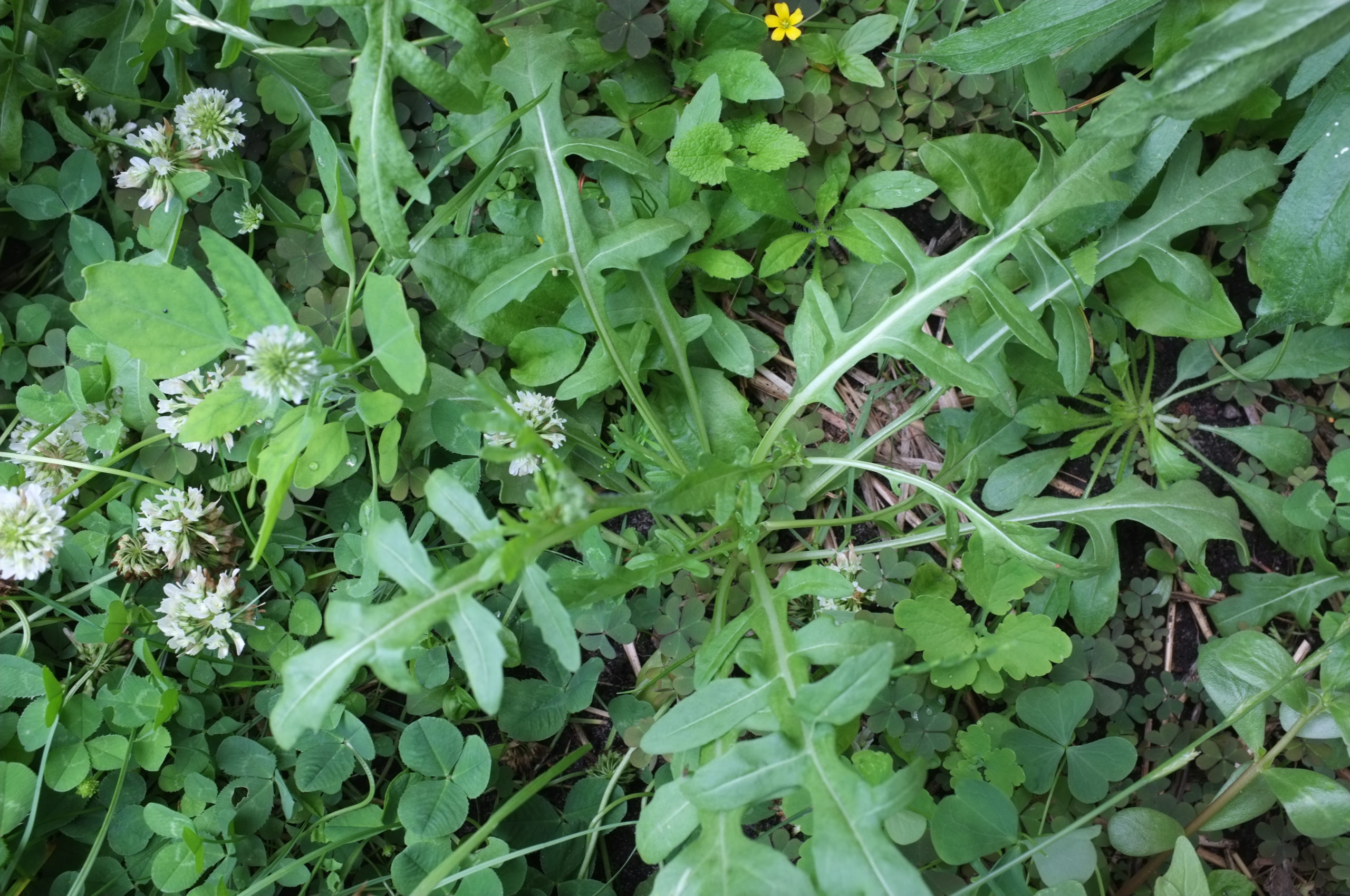
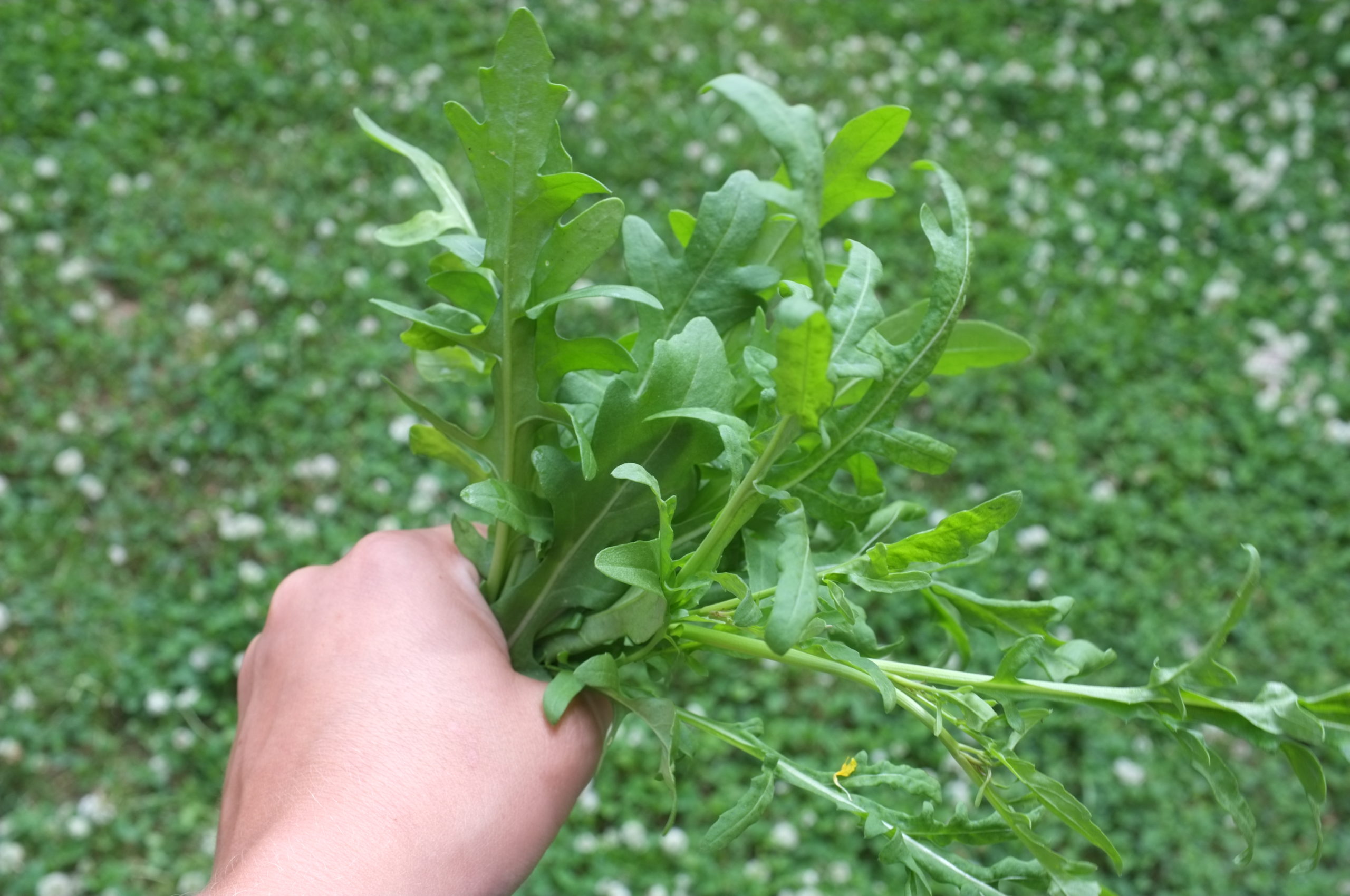
Why is it here?
This peppery annual didn’t travel quite as far as some of its South American and Asian counterparts. Arugula alias rocket found its way north from the Mediterranean. It only took to thriving in cities like Berlin in the last 5 to 10 years. We like to imagine that they are carried here in the wings of homecoming birds….
And why the bad rep?
What’s wrong with juicy salad greens growing in the park? Well, introducing a new plant species in any area always comes with its own Butterfly Effect. Or, in this case, moth effect. Garden carpet moths’ larvae LOVE to feast on arugula leaves, so more rucola can mean more moths.
That being said, we’re less concerned by the prospect of supporting moth populations because we need more insects and pollinators. Besides, who’re we to say they’re less appealing than butterflies. If anything, the rucola is taking nutrients away from other plants. But to be fair, it often grows in cracks in concrete and disturbed patches of soil, so it’s not really in anyone’s way, is it?
So what’s the good news?
Arugula is delicious, nutritious and great for the heart.
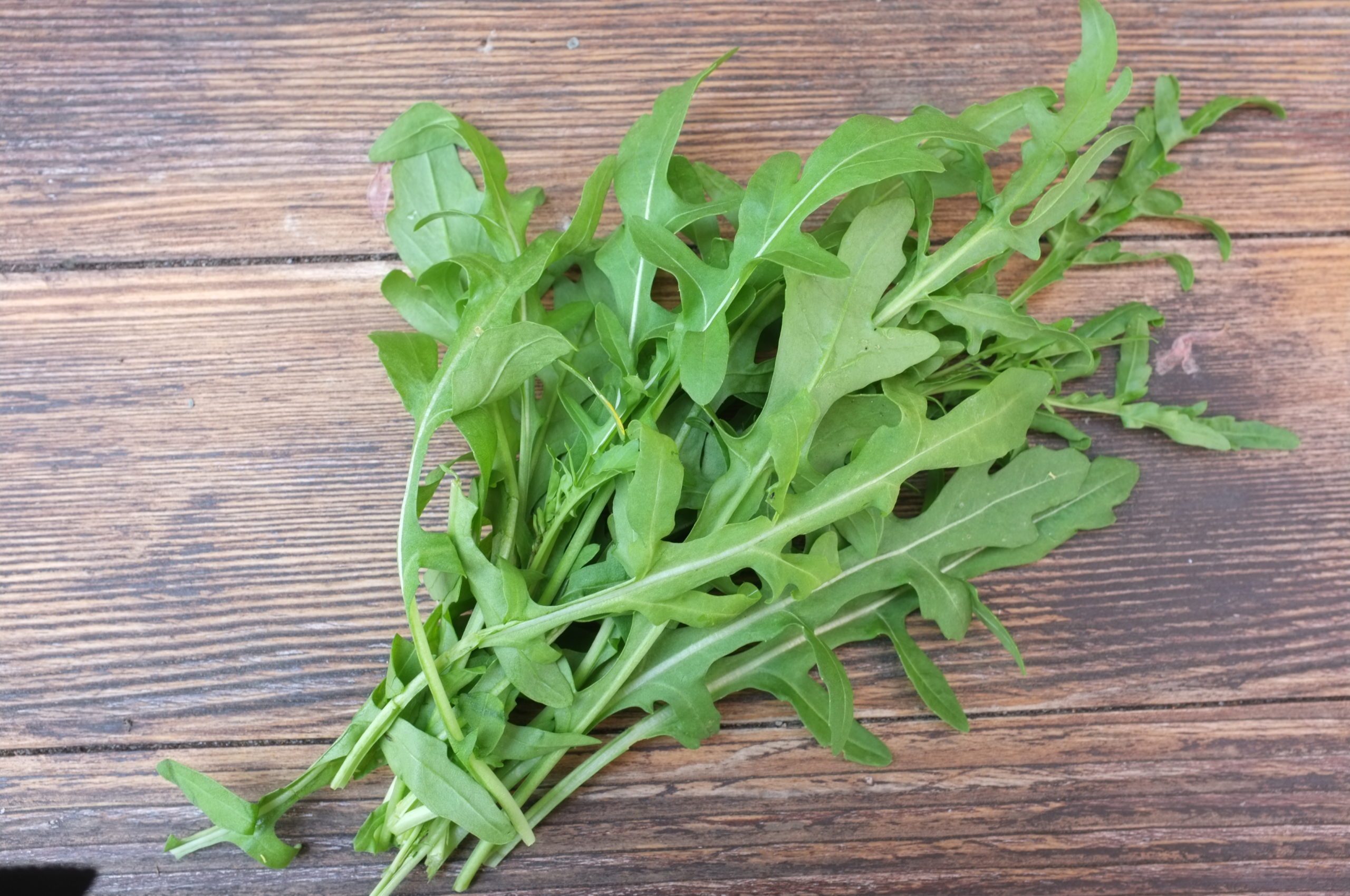
How about the harvest?
Arugula heart-shaped leaves shoot from the earth in early spring. These sturdy or many harvests until the first snow. And for those winters where it hasn’t snowed, it’s sometimes even stuck with us.
Can’t Beat It? EAT it!
This is one of the greatest fresh salad fillers or sandwich toppers of all times. You can also blend it with leeks to make a delectable wild pesto.
But Beware
This plant was forbidden in the Middle Ages for its potent, aphrodisiac properties. Don’t say we didn’t warn you.
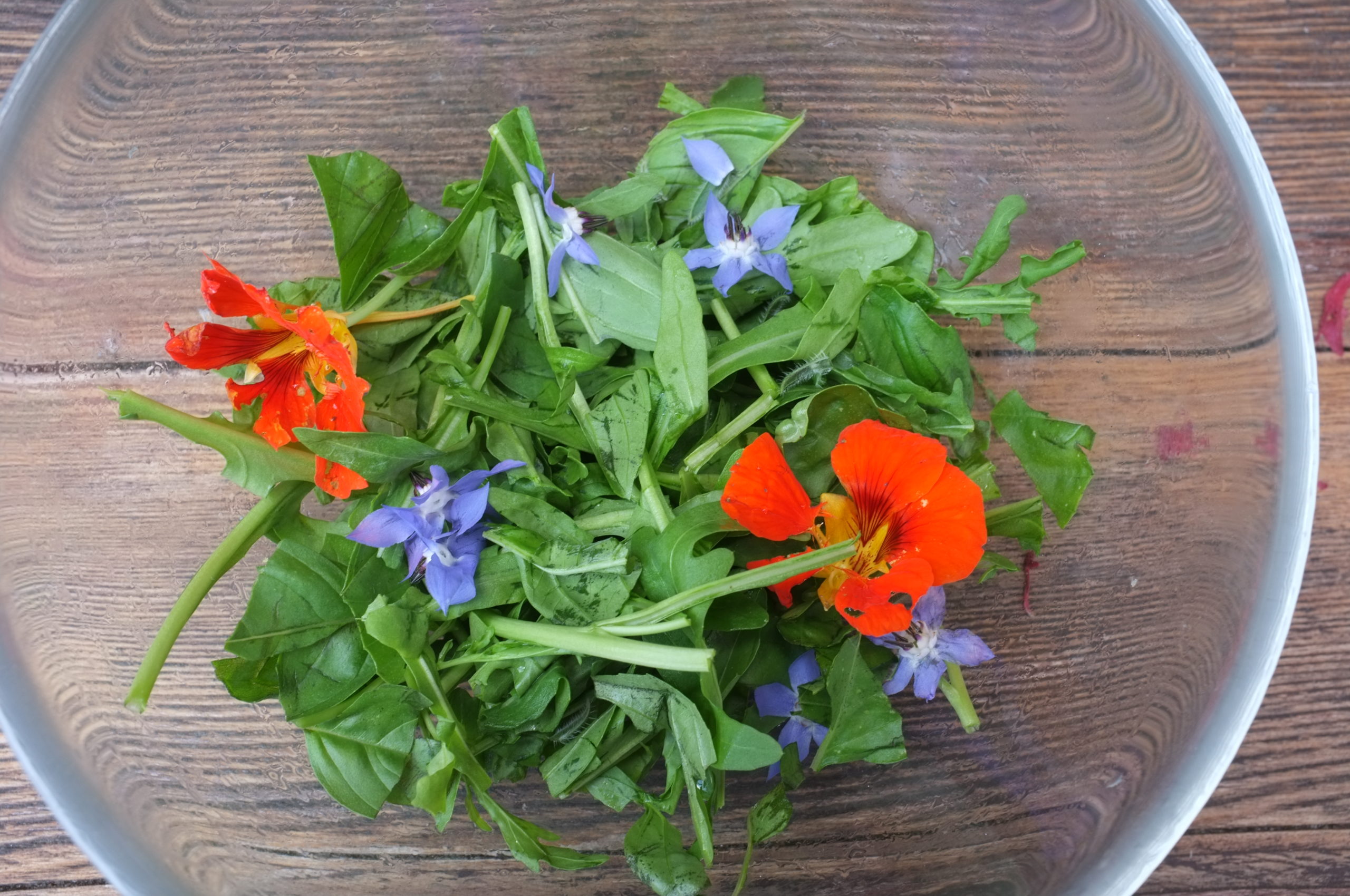
ABOUT EDIBLE INVASIVE PLANTS
As foraging and fermentation enthusiasts, one of the best ways to support our environment and sustain ourselves is to harvest and process invasive species. Because conventional gardeners and farmers so easily demonise them, these precious plants are frequently overlooked and undervalued in the culinary world.
“So what makes a pest pesky? And why do we need to weed out all the weeds?” you ask. Our answer, “It’s all about perspective.” This is exactly why we’ve taken it upon ourselves to embrace invasive species for their abundance and celebrate their nutritious value.
Head over to the foraging section on our blog to explore the entire series!
DISCLAIMER (!)
The information provided on our website is meant to support you on your foraging and fermentation journeys. Edible Alchemy does not assume any liability for plants you pick, touch, process or consume.
Be sure only to consume plants if you are 100% certain you are able to identify them correctly and thus rule out the possibility that they are false friends in disguise. Always consider consulting a herbalist or botanist before consuming plants from the wild. If in doubt, always go without!
Extra caution is advised for children, pregnant women, women who are breastfeeding, and people with pre-existing health conditions or who are taking medication. If you ever experience any allergic or adverse reactions to plants, please consult your physician immediately.

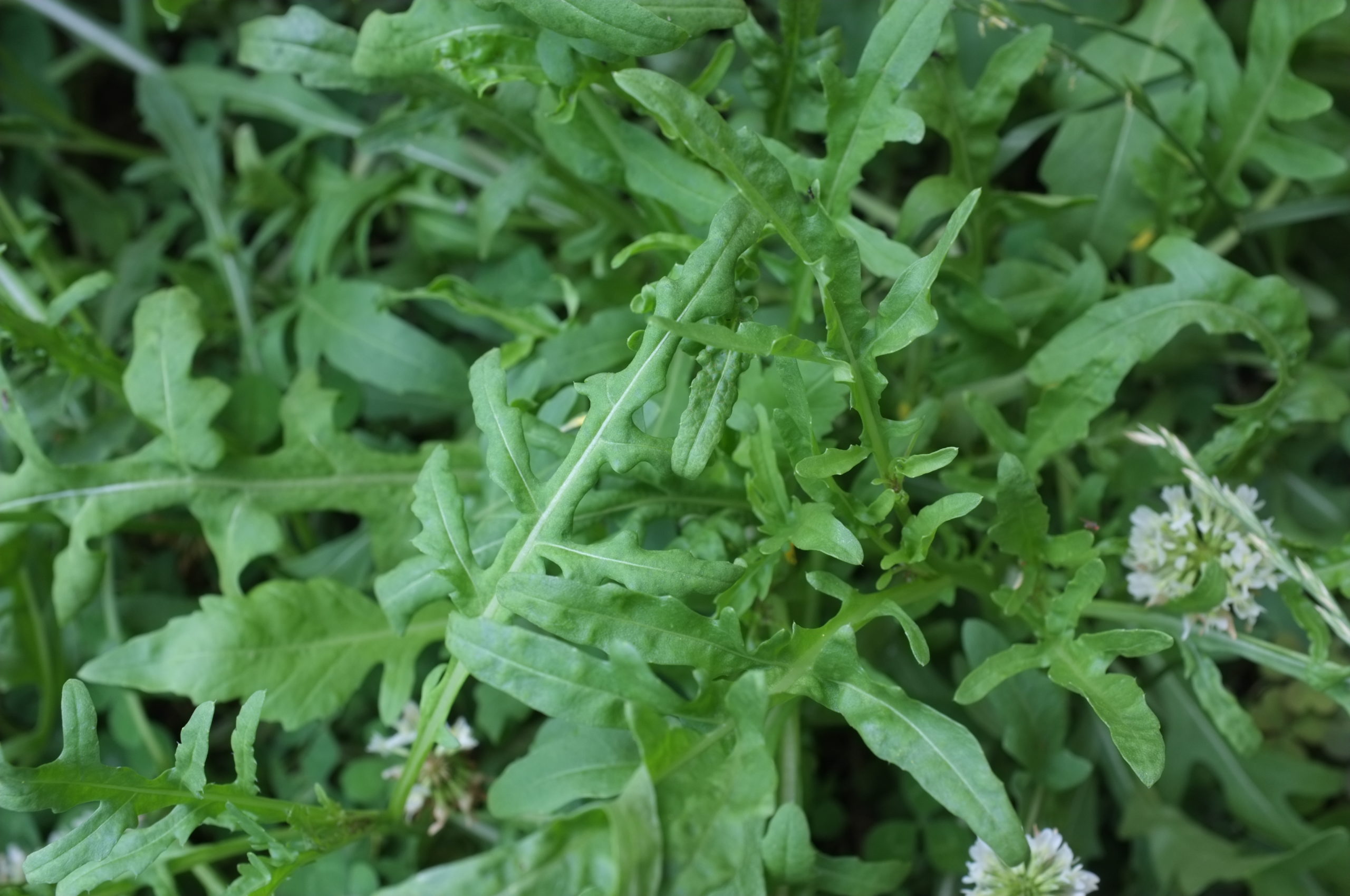
Interesting!
Interested in all kinds of weeds… didn’t know till recently how many are edible and medicinal!